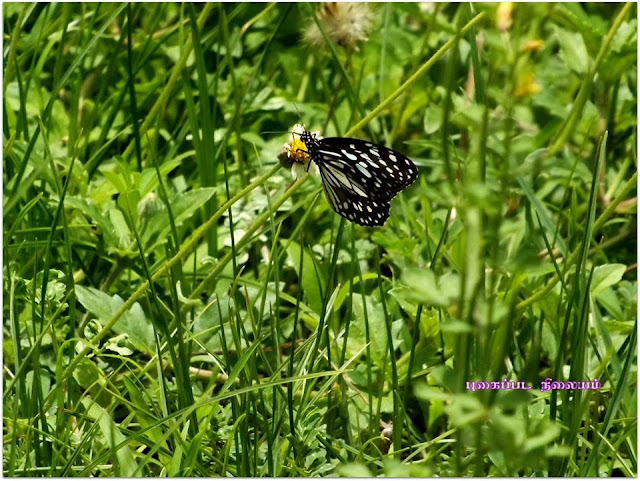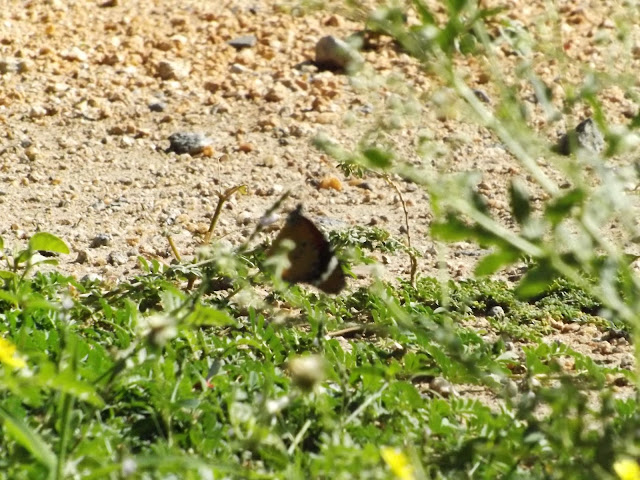ஒளி படைத்தக் கண்ணினாய் வா வா வா!உறுதி கொண்ட நெஞ்சினாய் வா வா வா!
என்று பாரதியாரால் அன்போடும், வீரத்தோடும் அழைக்கப்பட்டக் குழந்தைகள், இன்று அரசுப் பேருந்துகளில் இலவசப் பயணச்சீட்டிற்கு தங்கள் மனித மாண்பினையும், மரியாதையையும் விலைகொடுக்க வேண்டியிருப்பதைப் பார்க்கும் போது என் நெஞ்சம் சொல்லொண்ணாத் துயரம் அடைந்திருக்கிறது. அவர்கள் குழந்தைகள் என்ற முறையில் ஏற்கனவே பலவீனப்படுத்தப்பட்டிருக்கும் அகவிழி திறக்கப்படாத நம் சமுதாயத்தில், இன்றைய இலவசப் பயணச்சீட்டு அவர்களை இன்னும் மாண்பிழக்கச் செய்கிறது. எல்லா இலவசங்களையும் எதிர்ப்பது போல, இவ் வசதியையும் எதிர்ப்பதற்காக எழுதப்பட்டதல்ல இக்கட்டுரை. மாறாக அவ்வாறு குழந்தைகள் நலம் விரும்பி ஏற்படுத்தப்பட்டிருக்கும் இப்பணச்சீட்டு முறையில், இன்றையக் குழந்தைகள் எங்ஙனம் நடத்தப்படுகிறார்கள் என்பதையும், அவர்களது உடல், கல்வி, மனநலம் எந்த அளவிற்கு பாதிப்படைகிறது என்பதையும் இக்கட்டுரையில் காண்போம்.
பேருந்து நிறுத்தங்களில்
மெக்காலே, மெட்ரிகுலேஷேன் போன்ற வெள்ளைக்காரச் கல்விச் சரக்குகள் நம் குழந்தைகளின் முதுகுகளில் ஒருநாளும் குறையாத புத்தகச் சுமையினை ஏற்றிவிட்டு வேடிக்கைப் பார்ப்பதை நாம் அறிவோம். அம்மூட்டை முடிச்சுகளுடன் பேருந்து நிறுத்தத்திற்கு வந்து நிற்கும் போதே அவர்களின் காலை உணவு முழுவதுமாக செரித்து விடுகிறது. அதன் பின்னர் ஏராளம் தனியார் பேருந்துகளும், அதிவேக, மிக அதிவேக, குளிர்சாதன, இடைநில்லா என்று அத்தனை வகை பேருந்துகளையும் களைப்புடனே பார்த்தக்கொண்டிருக்கும் குழந்தைகள், தாங்கள் செல்ல வசதி படைத்த சில மிக மெது வேக பேருந்துகளின் பின்னாலும் ஓட வேண்டியிருக்கிறது. புத்தக மூட்டை அவர்களை பின்னோக்கி இழுத்தாலும், பள்ளி செல்ல வேண்டும் என்ற ஆர்வம் அவர்களை பேருந்தின் படிக்கட்டு வரை முன்னே செலுத்துகின்றது. குறைந்தது இரண்டு, மூன்று பேருந்துகளாவது அவர்களுக்கு ஒரு ஓட்டப்பயிற்சியினைக் கொடுத்தபின். வேண்டா வெறுப்பாக ஒரு பேருந்து முனகிக் கொண்டே அவர்களை தன்னுள் ஏற்றுக்கொள்கிறது.
நடத்துனரின் நடத்தைகள்
'டேய் நாயே! படிக்கட்டிலர்ந்து உள்ள வா!' என்ற பள்ளிக் குழந்தைகளுக்கு வரவேற்புரையாற்றுபவர் நடத்துனர். 'டிக்கெட்டா, பாசா?' என்றும் 'எத்தனை நாளு சொல்றது.. அந்த மூட்டைய எங்கயாச்சும் இறக்கி வையின்னு' கேட்கும் நடத்துனரிடம் எங்கு இறக்கி வைப்பது என்று தெரியாதக் குழந்தை விழிக்கிறது. 'முழியப் பாரு கள்ளப்பய மாதிரி, இதுகல்லாம் படிக்கப் போகுதோ, வேற எதுக்கும் போகுதா, நமக்குன்னு வந்து வாய்க்கிறாங்க பாரு' என்ற வசைச் சொற்களோடு பேருந்தில் தன்னால் இயன்ற அளவிற்கு முன்னேற முயல்கிறது குழந்தை.
பிற பயணிகளின் பங்களிப்பு
'ஏய் உங்களுக்கெல்லாம் வேற பஸ்ல வந்தா என்ன? ச்சி.. அங்க தள்ளி போ!'
என்று இப்படி ஒரு உருவத்தை இதற்கு முன் பார்த்ததே இல்லை என்பது போன்ற பாவனையை முகத்தில் காட்டி அக்குழந்தைகளின் முகத்தில் வெறுப்பு அமிலத்தை தெளிப்பது பிற பயணிகளின் வேலை. இவர்கள் பிரயாணிகளா? அல்லது பிராணிகளா? என்று கூட பல வேளைகளில் எண்ணியிருக்கிறேன். இவர்கள் குழந்தைகளாக இருந்ததே இல்லை போல. அல்லது இவர்களுக்கு குழந்தைகளே இல்லை போல.
பள்ளியில் குழந்தைகள்
ஊர்ந்து சென்ற பேருந்து வழக்கம் போல நிறுத்தத்திலிருந்து அரைகல் தள்ளியே நிற்கிறது. இறங்கி மேல் மூச்சு, கீழ் மூச்சு வாங்க ஓடியும் குழந்தையால் முதல் பாடவேளையில் கடைசி நிமிடத்தில்தான் நுழைய முடிகிறது. பேருந்திலிருந்து உமிழப்பட்டக் குழந்தைகள், இங்கும் இருக்கையின் மேல் நிற்க, முழங்கால் நிற்க, ஐந்நூறு முறை 'இனி நான் காலந்தவறாமல் வருவேன்' என்று எழுத என ஏதோவொரு தண்டனையைப் பெறுகிறது.
அறநெறி பார்வையில்
இவற்றையெல்லாம் பார்த்துக்கொண்டு நீ என்ன செய்தாய் என்று நீங்கள் நினைப்பது எனக்கு கேட்கிறது. நான்; அச்சிறுவர்களை 'இப்படி வாங்க தம்பி' என்று பன்மையில் அழைப்பதை ஒரு சிறு பங்களிப்பாகக் கருதுகிறேன். இத்தனை தெளிவிற்கு பின்னரும் இப்படித்தான் என் பங்களிப்பு இருக்கிறது என்றால் அது எந்த மாற்றத்தையும் உருவாக்காது என்பதையும் உணர்கிறேன். 'மனிதர் நோக மனிதர் பார்க்கும் பழக்கம் ஒழியுமோ' என்ற பாரதியாரின் வார்த்தைகள் என் நெஞ்சைச் சுடுகின்றது. அறநெறியின் பன்முகத்தன்மையில் பார்க்கும் போது குழந்தைகளின் மாண்பு என்பது சட்டமாக, ஒவ்வொருவரின் உள்ள உறுதிப்பாடாக, தனிமனித வளர்ச்சியாக, பிறர் மீதுள்ள அன்பாக, அனைத்திற்கும் உச்சமாக ஒரு சமூக மாற்றமாக உருவெடுக்க வேண்டும் என்பதே என் உள்ளார்ந்த விருப்பம். குழந்தைகளின் மீதான இந்த வன்முறையைப் பார்த்த பின்னரும் நாம் அந்த இடத்திலேயும், பின்னர் இந்நிலை முற்றிலும் மாறும் வண்ணம் அதற்கான முயற்சிகளையும் மேற்கொள்ளாவிடின் நீதியின் பரிமாணங்களாகிய பொதுநீதி, கடமையைச் செய்ய வைக்கும் நீதி, சமூக நீதி போன்றவற்றை தெரிந்து வைத்திருந்தும் அவற்றிற்கு அநீதி இழைக்கின்றோம் என்றே பொருள். இனி வரும் நாளில் குழந்தைகள் மாண்பினை மதிப்பேன் என்றும் காப்பேன் என்றும் உறுதி கொள்வோமா?















































